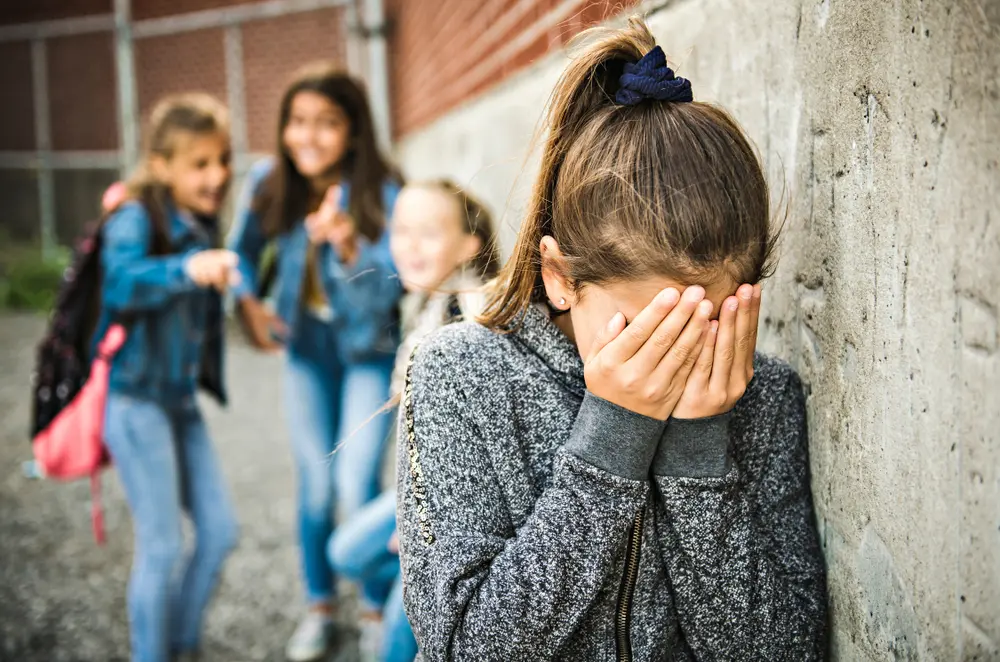Over the years many of us as adults had to deal with aggressive and short-tempered employers. You probably remember how that made you feel, and how you reacted to being treated that way. Even as an adult, it was difficult to handle. Can you imagine how that will affect a child? Let’s consider bullying and its impact on children’s mental health.
Is Bullying a New Phenomena?

Did we have bullying back in the day? Were other generations of kids and adolescents victims like they seem to be today? There have probably always been bullies. The difference is today our culture sometimes showcases them in movies like “Mean Girls.” Add to that the anonymity of the internet and social media, and we have an avalanche of bullying, and worst of all, no accountability.
It’s not new, but it seems worse.
How Does Harassment and Bullying Affect Children?
Bullying affects a child’s physical, mental, and social functioning. Children can experience the following as a result of being bullied:
- Anxiety
- Depression
- Loneliness
- Panic disorders
- Agoraphobia
- Avoiding school
The sad truth is that both the bullies and those being bullied suffer consequences, and it changes their lives.
Those who bully are at increased risk for:
- Substance abuse
- Academic problems
- Violence toward others later in life
Bullying Affects Self-Esteem
A child being bullied is constantly on alert and feeling insecure. They can feel angry, unimportant, and may withdraw from friends, activities, and school. This anxiety can stay with them their entire lives so they never develop their full potential.
Bullying Affects Mental Health
When a child is bullied, he or she can become depressed and even have thoughts of suicide. The number of young people committing suicide has increased dramatically in the last decade. It is believed that adolescents who have been bullied are twice as likely to harm themselves.
They may have also have sleep problems, anxiety, panic attacks, and feel lonely.
Changes in appetite, feeling guilty all the time, and lack of trust are all part of the consequences of being bullied. It becomes hard to establish relationships.
Bullying Affects Physical Health
Bullying can affect a child’s eating habits. Not eating enough nutritious foods or eating too much can be problematic for someone at any age.
Know the Signs of Bullying
As a parent, educator, or coach be aware of the signs of a child being bullied. You will notice a loss of self confidence, increased self criticism, and increased isolation.
Additional signs a child may be getting bullied include:
- Crying
- Fits of anger
- Feeling hopeless
- Loss of interest in activities once enjoyed
- Guilt
- Trouble focusing on school work
It doesn’t matter if a child is being bullied physically, verbally, or through cyberbullying, they need to know there is help out there.
Encourage them to speak to someone in authority at their school. Parents should speak to their primary care physician or Genesis Pediatrics for additional help.
